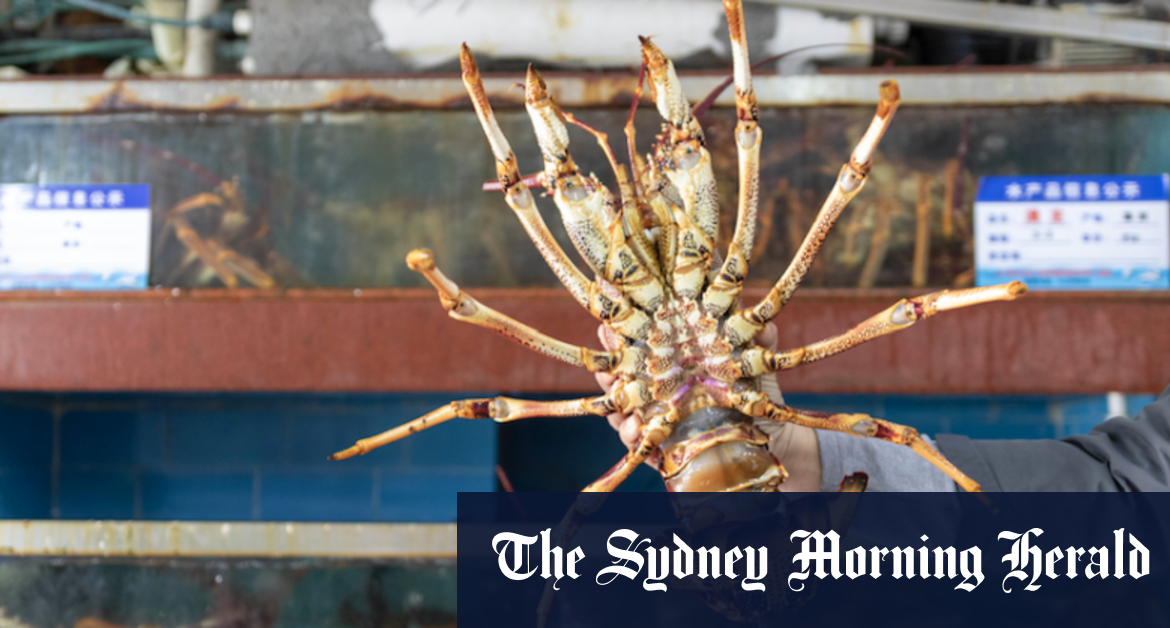Both stores have increased their orders of local lobster amid an escalating trade war between Australia and China. China has introduced tariffs on barley and wine, banned imports of coal and blocked lobster after Prime Minister Scott Morrison called for an inquiry into the origin of the coronavirus pandemic in Wuhan. More than 94 per cent of the nation’s $752 million rock lobster exports went to China last year.
But even if you get your hands on a lobster with a rock-bottom price tag, your traditional Christmas dinner may still be affected in other ways by the pandemic. While COVID-19 hasn’t completely changed what’s available, the price of each of the ingredients could be vastly different than what was cooked up 12 months ago.
Citrus Australia chief executive Nathan Hancock warns squeezing a lemon on top of your cheap seafood is becoming more expensive.
“At this time of year leading towards Christmas, and seeing what’s happening in the market, it’s going to be a ‘seafood Christmas’,” Hancock says. “This means there could be a run on lemons. More people doing staycations may also mean a bit more demand for produce at home.”
Compounding this higher demand is a supply problem, with many producers who are dependent on backpackers for picking fruit finding it difficult to get enough workers while international borders are shut to limit the spread of coronavirus.
“There are currently around 52,000 working holiday-makers [in Australia], there are usually 140,000. It’s significantly down,” Hancock says. “Internal border restrictions being lifted has helped more domestic travel to hotspots like Byron, Broome and Margaret River but there is now a strong demand for labour in tourist sectors. It’s a challenge [for producers].”
The Australian Bureau of Agricultural and Resource Economic Sciences estimates horticultural produce prices will rise in 2020-21 due to a drop in production on the back of fewer workers due to the travel restrictions. This could see summer vegetables, stone fruit, pome fruit (such as apples) and table grapes increase in price between 15 per cent and 25 per cent. Other favourites such as ginger have also surged in price over 2020 amid a worldwide shortage following a poor harvest.
Loading
Adding to the pressure on food prices is higher levels of demand at supermarkets for all produce as more households eat at home amid reminders to social distance to avoid further outbreaks of the virus. Agriculture Minister David Littleproud is also encouraging Australians to eat local, fresh produce over Christmas including fruit, vegetables, seafood, dairy, meat and wine to help support local businesses.
“In the Littleproud household it will be succulent Aussie pork roast, spuds and apple sauce – paired with a crisp drop of cool climate Granite Belt white wine from my electorate of Maranoa,” Mr Littleproud said in a statement.
A spokeswoman for Australian Pork says hams are already selling quickly in the lead-up to Christmas. In 2019-20 Australians ate 28 kilograms of pork products per person, with poultry the most popular meat.
Start your day informed
Our Morning Edition newsletter is a curated guide to the most important and interesting stories, analysis and insights. Sign up here.
Jennifer Duke is an economics correspondent for The Sydney Morning Herald and The Age, based at Parliament House in Canberra.
Most Viewed in Politics
Loading







